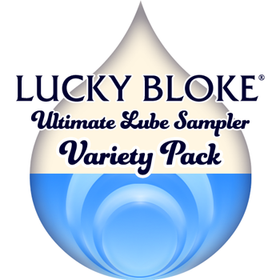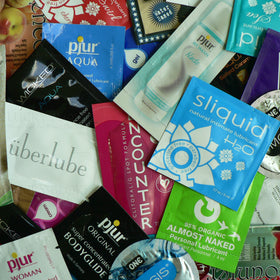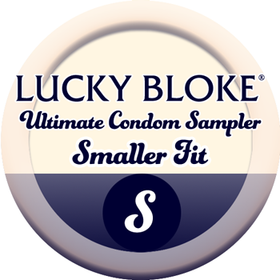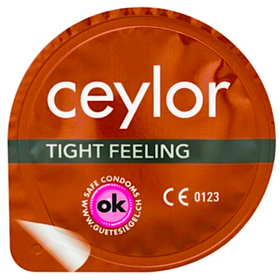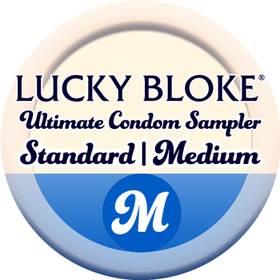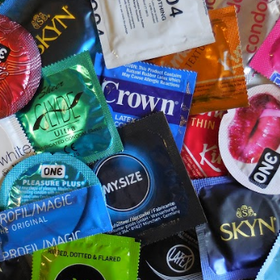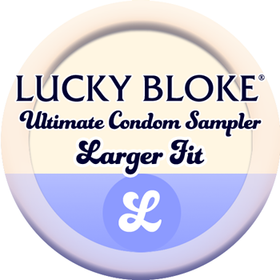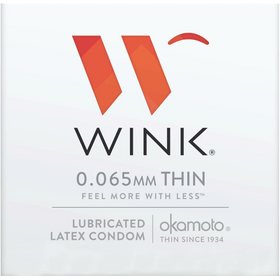Period Problems & Organic Tampons… Solutions That Are Better For You & The Planet
If you menstruate, it’s almost impossible to think about your period without also thinking of the wave of frustrations that accompany it.
But the unrelenting cramps, inevitable underwear stains, tiredness and expensive menstrual products are just the tip of the iceberg. There’s a great deal of shame and stigma that continues to haunt this natural occurrence that 50% of the world experiences.
Since menstruation has been considered a taboo subject in society for so long, the “feminine products” industry has spent decades focusing on helping women keep their monthly visitor hidden. In fact, this discreet advertising tactic continues to this day.
We may be living in a time when significant progress is being made for women’s rights and equality, but when it comes to our monthly cycles, the world is still woefully behind.
Thanks to the pervasive stigma that discourages us from talking about our periods, the area of menstrual science hasn’t developed as quickly as it might have otherwise. Industries like diet and nutrition, for instance, have seen advancements in science as well as innovations in the business and tech that makes nutrition accessible to the masses. Periods, on the other hand, have remained more or less the same for decades.
So how we do away with this outdated stigma? And what might the menstrual industry look like if this code of silence were not in place?
Claire Coder, founder of the organic tampon company Aunt Flow, has a few ideas.
The first and most important issue is ending menstrual stigma, so that we can talk about periods without shame.
“The problem is that periods aren’t normalized in society. Once we normalize the topic, then we can help reduce stigma,” writes Coder in an email. “I think it is also still a problem because not everyone gets a period. Men do not, therefore it is difficult for them to understand the specifics of why women and others get a period. If everyone got a period, then it probably would not be as ‘taboo’ of a topic.”
This starts with having open, inclusive conversations around reproductive health with bleeders and non-bleeders alike. Coder also believes it’s the job of the menstrual product industry, like her own organic tampon company, to jump start these conversations and be a catalyst for real change in how society handles periods.
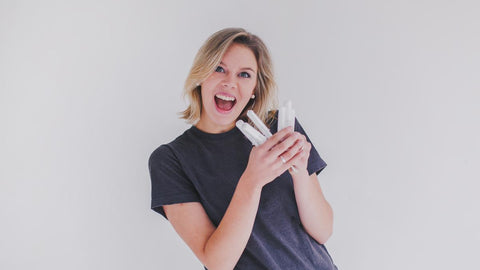
“The industry, in general, can be more inclusive to non-menstruators,” writes Coder. “The only way to make real, radical change is to include everyone in the conversation.”
There are a host of significant menstruation problems that we need to learn about and find ways to solve — beginning with accessibility.
It’s impossible for women to have total autonomy over their periods when they don’t even have proper access to the menstrual products they need. In fact, that’s what inspired Coder to create an organic tampon company in the first place.
“After getting my period at an event without the supplies I needed, I thought to myself, ‘toilet paper is offered for free, why aren’t tampons and pads?’ At that moment, bloody underwear and all, I knew that I wanted to be on a mission to ensure EVERYONE has access to quality menstrual products.”
This lack of accessibility to menstrual products affects women the world over, in ways that are far more than just inconvenient. When people, especially those who are low-income or homeless, aren’t able to access menstrual products, they can develop poor menstrual hygiene which has been known to cause infections and even cervical cancer.
Tampons and pads are expensive (especially when you include the “tampon tax” that over 40 states in America impose). You also can’t use food stamps to buy them, so people often forgo food in order to keep working/going to school/living their lives normally. When you look at menstruation like this, it’s clear that we’re dealing with a human rights issue.
Thankfully, this realization has sparked a wave of global innovation and activism — from grassroots menstrual product donation endeavors to burgeoning menstrual product companies adopting ongoing giveback missions.
Aunt Flow is part of the latter. For every 10 organic tampons and pads Aunt Flow sells they donate 1 to a menstruator in need.
They’re also making it clear that women aren’t the only people dealing with this period crisis — yet another problem that goes under-discussed among menstruators.
The suppression of period conversation means that menstruation in general has been slow to catch up to the LGBTQ progress we’re seeing across other industries. The marketing of menstrual products as “feminine” excludes people who are trans and nonbinary from the conversation, despite the fact that they, too, can menstruate.
“Aunt Flow is an all inclusive brand, meaning we are inclusive to all genders,” notes Coder. “We took the action to remove ‘feminine hygiene’ from all of our branding and replacing with ‘menstrual products.’” It may sound like a small thing, but it makes a huge difference to transgender people who may still bleed but no longer identify as female.
Of course another period problem that we all have to deal with is the waste menstrual products create.
In 2019, nearly every industry has been pressured to make leaps and bounds in the direction of environmentalism, but since people feel less comfortable talking openly about their periods, there has been less opportunity to demand less harmful methods of handling menstruation.
It’s estimated that somewhere around 45 million period products are thrown in the garbage each year. Tampons themselves are not recyclable, and despite warnings against it, many people flush them down the toilet after using them, meaning they end up in sewer systems and waterways.
Plastic tampon applicators, while technically recyclable, are made of low-density polyethylene that will take centuries to biodegrade. And, as they’re so light, they frequently find themselves blown out of recycling heaps and waste barges — which is how they end up on the beach.
Thankfully, the opening up of the menstrual conversation means that newer, more forward-thinking menstrual product companies have begun producing products that are not only better for the user, but they’re better for the earth as well. Aunt Flow’s products are an example — organic tampons are not just biodegradable, but can actually be included in compost!
What about organic tampons?
Thankfully the new organic tampon movement has brought light to another overlooked element of the menstrual conversation: the harmful impacts of traditional period products.
Without any sort of move toward innovation in period products, people have been using traditional products for years without any idea of the impact it may be having on their body. But standard tampons can include a host of chemicals that put a person’s natural hygiene balance at risk.
All tampons are made of cotton, but the cotton used in non-organic tampons is typically grown using pesticides that aren’t completely removed before the product reaches a person’s body.
Depending on your preferred brand, your tampon might also include rayon to help with absorbance and odor, and it’s likely that the entire package has been bleached and treated with other chemicals to enhance whiteness. And if it’s fragranced or dyed, those are chemicals, too.
The only way to avoid these traditional toxicants is to switch to organic tampons, which are better for the body and for the earth.
Look for a disclosure on the label — in the case of Aunt Flow, the tampons are FDA approved, with no synthetics, chemicals, or dyes.
While this progress sounds encouraging, we still have a long way to go before accessibility, inclusivity, and sustainability are up to par in the menstrual product industry.
Smaller companies are doing their part, but until the bigger hygiene companies catch on, it will be difficult for us to collectively take significant strides forward.
Everyone who needs them should have access to affordable menstrual products. Every product should be biodegradable or reusable. Every tampon should be organic and chemical-free. No one should have to fear judgement for buying or using these products because of their gender.
The more people know about menstruation and understand what challenges people who menstruate face, the faster things will improve. So the next time you get your period or encounter someone dealing with it, be open to a conversation. You never know what change you might affect.
Ready to take the plunge and move to organic tampons for your body and your conscience, Lucky Bloke is happy to offer many different Aunt Flow organic tampons and pads in our store. And of course, visit Aunt Flow to keep up with all of their good work in the world. Together, we're making a difference.

